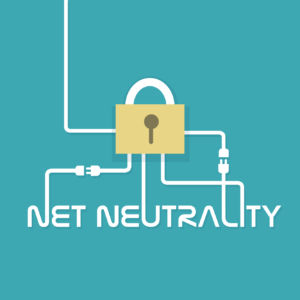The Federal Communications Commission recently released a draft net-neutrality order that it will soon vote on (April 25th). Unfortunately, the 434-page proposal appears just as flawed as previous versions.
Similar to the initial proposal, this draft order would reclassify broadband services from a Title I information service to a Title II telecommunications service under the Communications Act of 1934. The draft order would also reinstate strict rules that prohibit “blocking, throttling and paid prioritization,” re-establish a general conduct standard that prohibits “unreasonable interference,” and make other significant changes. The commission believes reclassification is necessary to “safeguard the fair and open internet” and protect consumers.
However, the internet is already “fair and open,” and consumers increasingly enjoy a wide range of services available at reasonable and even declining prices. It is also better and faster than ever, with the U.S. consistently outperforming Europe on crucial performance measures despite the latter being far more regulated.
The reclassification of broadband services is unnecessary and represents a radical departure from the light-touch approach to internet regulation that has served the county well. In practice, reclassification would subject broadband services to a regulatory framework initially designed to address a 1930s telephone monopoly, not the vastly more competitive broadband market.
Unsurprisingly, this order is sure to lead to significant unintended consequences for investment, deployment and access within the broadband market, as well as for consumers who will experience higher broadband prices due to increased tax exposure traditionally experienced only by telecommunication services.
Net-neutrality regulations have been tried once before and with disastrous results. For instance, research by Georgetown University found that the 2015 net-neutrality rules led to a “17.8 percent reduction in nominal and 19.8 percent reduction in real dollars,” in terms of investment. Investment levels did not rebound until 2017, when the FTC indicated it intended to repeal these regulations. Reimposing such regulations now would almost certainly lead to a similar outcome and harm market innovation.
In addition to regurgitating old arguments, the FCC leans on unproven arguments that use public safety and national security to justify a larger government role in the broadband market. The commission says this increased role is supported by its statutory authority to “defend communications networks and critical infrastructure.” Yet, as the American Consumer Institute noted, the commission already has broad power to shut down bad actors deemed to be security threats.
In recent years, the commission has taken action against a wide range of companies that it thought were subject to the influence or control of foreign governments. There is no reason the commission needs more authority in this area, primarily when Congress never intended for it to be the lead agency on national security questions.
None of this matters to the commission, which is pushing full steam ahead with its plan to impose regulations on the broadband market regardless. While the commission is correct that “access to affordable reliable, high-speed broadband is essential to full participation in modern life,” reclassifying broadband services as a telecommunications service would undermine the competitive processes that have made broadband access essential in the first place and unlocked countless consumer benefits.
For these reasons, the commission would be wise to reconsider this rulemaking, which is sure to produce unintended consequences for consumers and the broadband market.


